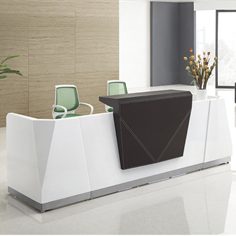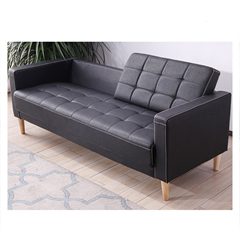Introduction: As technology continues to advance, the future of office chairs is set to be revolutionized by the integration of smart features. Smart office chairs, equipped with sensors, artificial intelligence, and connectivity, are poised to enhance employee productivity and well-being. In this blog, we will explore the exciting potential of smart office chairs and the benefits they bring to the workplace.
- Personalized Ergonomics: Smart office chairs can use sensors to analyze an employee’s posture and movement patterns. With this data, the chair can automatically adjust its ergonomics to provide personalized support, optimizing comfort and reducing the risk of strain-related issues.
- Activity Tracking and Health Monitoring: Incorporating health monitoring features, such as heart rate sensors and posture trackers, smart office chairs can provide real-time feedback on an employee’s health and well-being. This information can be used to encourage healthy habits and prompt users to take breaks or stretch during extended periods of sitting.
- Productivity Insights: Smart chairs can gather data on an employee’s sitting habits and overall work patterns. Employers can use this data to gain insights into employee productivity and identify potential areas for improvement in workflow and task management.
- AI-Driven Assistance: With artificial intelligence, smart office chairs can learn from user behavior and preferences, adjusting their settings accordingly. AI-driven virtual assistants can also offer proactive suggestions for improving posture or taking breaks, further promoting employee well-being.
- Connectivity and Collaboration: Smart office chairs can be integrated into the broader office ecosystem, connecting with other smart devices and office systems. This connectivity enhances collaboration and communication within the workplace, creating a seamless and efficient work environment.
- Energy Efficiency: Smart office chairs can incorporate energy-saving features, such as automatically powering down when not in use. These energy-efficient designs contribute to a more sustainable workplace and reduce electricity consumption.
- Real-Time Environmental Adaptation: Advanced smart chairs can sense changes in environmental conditions, such as temperature and lighting, and adjust their settings to provide the most comfortable seating experience for users.
Conclusion: The future of office chairs lies in the integration of smart technology, which has the potential to revolutionize the workplace by enhancing productivity, promoting employee well-being, and fostering a connected and efficient work environment. As smart office chairs become more prevalent, businesses can expect to witness a positive transformation in how employees interact with their workspace and perform their tasks.













